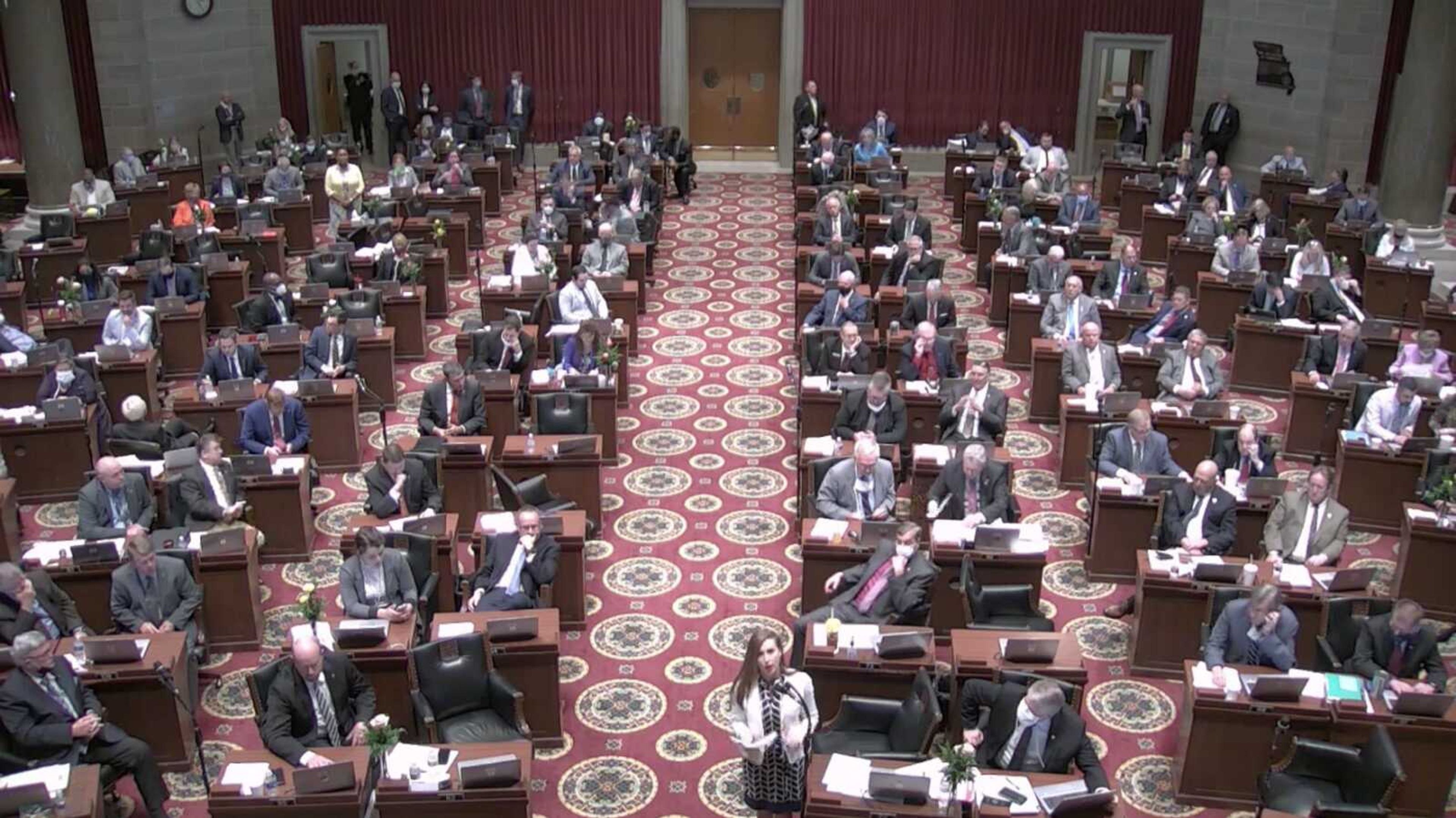Clock runs out on PDMP bill: Missouri remains only state without comprehensive database
Missouri lawmakers on Friday reached an impasse on legislation that would have enacted a statewide prescription drug monitoring program (PDMP), an electronic database that tracks prescriptions for controlled substances. The 2020 legislative session ended at 6 p.m. Friday...
Missouri lawmakers on Friday reached an impasse on legislation that would have enacted a statewide prescription drug monitoring program (PDMP), an electronic database that tracks prescriptions for controlled substances.
The 2020 legislative session ended at 6 p.m. Friday.
After being amended and approved by the House with a 94-59 vote last week, House Bill 1693, or the Narcotics Control Act, required a final vote of approval by the Senate — a vote it never saw.
The bill was carried by Rep. Holly Rehder, R-Sikeston, who told the Southeast Missourian on Sunday that senators engaged in a filibuster as the clock ran out on the legislative session.
“I am so incredibly disappointed for our families, for our doctors, for our nurses that are dealing with this epidemic every day with one hand tied behind their back,” said Rehder, who has now championed similar legislation for eight years.
While Missouri remains the only state in the nation without a statewide database, it is not unfamiliar with such a program. In 2017, St. Louis County launched a PDMP in which more than 75 Missouri jurisdictions participate, covering about 85% of the state’s population, including Cape Girardeau County and much of Southeast Missouri.
Given the current program in place, some lawmakers who voted in opposition to the proposed legislation voiced concerns about the cost of creating a statewide program. One such legislator was Rep. Barry Hovis, R-Whitewater, who spoke to the Missourian about his concerns last week following the House’s approval of the amended bill.
“We are hurting so bad for money in the state,” Hovis said, noting he had concerns about the effectiveness of a statewide program and “spending state tax dollars when we’ve got other things that are probably just ... as needy.”
The expected impact to the state’s general revenue was estimated to be $1,390,652 in FY2021 for “contracted database development and associated program start-up costs,” according to the fiscal note.
Along with Hovis, Southeast Missouri legislators Reps. Kathy Swan, R-Cape Girardeau and Sen. Wayne Wallingford of Cape Girardeau, voted against the bill. Rep. Rick Francis, R-Perryville, voted in its favor.
Rehder said fiscal notes on proposed legislation are “typically high” and often higher than the actual cost of the program. She pointed to the St. Louis County PDMP, which she said costs “about $500,000 a year” and noted federal grants may be available to cover costs.
The fiscal note mentions an available federal grant program that allows states to apply for a one-time $400,000 grant to start a narcotics control program. However, states can only apply for the funding if they have already passed and enacted legislation for such a program, the note stated.
“As the amount of any award is unknown, the impact to both General Revenue and Federal Funds will be unknown in FY 2022,” the fiscal note read.
Rehder said a Senate amendment that added language regarding increased penalties for fentanyl trafficking caused an increase in the fiscal note. The fentanyl language was included in other legislation, she said, and therefore, was something she didn’t foresee being an issue.
That language was ultimately a sticking point for representatives who defeated the bill early last week. House members later agreed to remove the language and approved the bill as amended.
But because of another change, the Narcotics Control Act had to be presented once more to the Senate where, in the end, it stalled.
Rehder said she was disappointed for Missourians who she said “have to suffer because of people playing politics in Jefferson City.” However, she expressed appreciation for the senators who she said “came to the table” to work out a compromise.
Since being elected in 2012, Rehder said this year was the closest she has been to seeing this type of legislation through the Missouri Assembly.
“It’s the first time we came to a compromise in the Senate,” she said.
The compromise Rehder referred to was reached in March after senators called for amendments giving oversight of the PDMP to a board made up of licensed medical professionals, rather than the Missouri Department of Health and Senior Services, as the bill originally read.
Such a board would have been comprised of two licensed professionals designated by the Missouri Board of Registration for the Healing Arts, two licensed members from the Missouri Board of Pharmacy, one licensed advanced practice registered nurse from the Missouri Board of Nursing and one licensed member from the Missouri Dental Board.
“That was what the senate conservative caucus that had held it up for years ... wanted, was a private board,” she said. “I was pleased with that.”
Swan and Rehder, both of whom are term-limited, are running for a seat in the Missouri Senate currently held by Wallingford. If Rehder is elected, she said she plans to continue pushing for legislation to help “turn the tide” in the opioid epidemic.
She does not anticipate the PDMP legislation will be brought back up during a special session later this year.
“But I’m hopeful that one way or the other, whether [the] St. Louis County [PDMP] becomes statewide or we get this done in the legislature, I’m hopeful that it will soon be done,” Rehder said.
Connect with the Southeast Missourian Newsroom:
For corrections to this story or other insights for the editor, click here. To submit a letter to the editor, click here. To learn about the Southeast Missourian’s AI Policy, click here.










